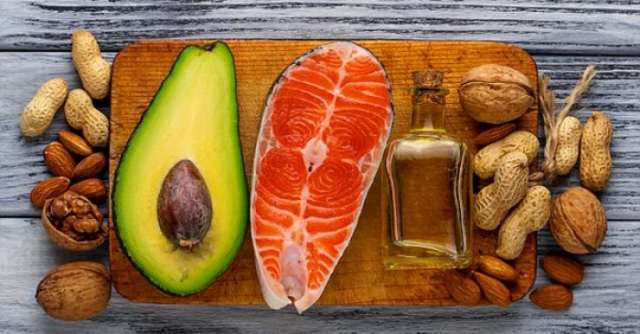The problem is the body can't function properly unless it has a certain amount of calories each day.
Some fad diets can encourage you to go below a healthy recommendation which can, in turn, alter your metabolism - how the body processes food.
Speaking to FEMAIL, dietitian Elizabeth Ferrone explains why it's better to ditch dieting altogether and make your new long-term goal health and well being.
1. MINIMISING CALORIES WILL CHANGE THE WAY YOUR BODY WORKS
Diets, for the most part, restrict your food intake. This can either be through portion control or through eliminating certain foods.
Ms Ferrone said a study carried out on contestants from The Biggest Loser showed that eating less than 800 calories a day can cause a condition known as metabolic re-adaptation.
When this occurs the body's rate of processing food slows down to the point where it only requires this amount of calories per day.
This intake becomes the body's new calorie set point. If this isn't maintained, the weight lost, by dropping to this lower calorie figure, returns immediately.
She recommends people stay above 1000 calories a day.
'The issue is diets are designed to work for a certain period, and it's presumed once the weight is lost, the person can return to their previous relationship with food,' Ms Ferrone said.
'If a diet is restrictive in this way, it can make life tricky. It makes ordering meals at restaurants hard and preparing meals at home difficult due to lack of variety.
'Inevitably you'll be stuck in a situation which forces you to break your diet and once you revert back to the old ways, any benefits reaped by cutting out food groups are likely to be short-lived.'
Instead, Ms Ferrone suggests tweaking your diet to include less highly-processed carbs and refined sugars, including more vegetables and cutting down on takeaway foods.
'Rome wasn't built in a day and neither will your dream body,' she added.
2. FOCUS ON CHOOSING HEALTHY SUBSTITUTES
It can be tempting to think everything you once enjoyed needs to be cut entirely in order to lose weight.
And while adjustments need to be made in order to reap the benefits, Ms Ferrone said finding healthy alternatives can be a better way to sustain weight loss over the long term.
'It's important that these substitutions are also foods that you enjoy, otherwise, you will end up reaching for the chip packet or chocolate biscuits.
'Think air-popped popcorn instead of potato chips, sparkling water or kombucha instead of soft drinks or a nut bar instead of a chocolate snack.'
Switching out foods that are in some way similar will make this easier, the dietitian added.
'Hitting a sugar craving with carrot sticks just isn't going to cut it.'
3. FOOD ISN'T THE ENEMY
If you are actively trying to lose weight it can be easy to view food as the problem.
The expert said if you are on a diet it's all too easy to feel guilty if you have a piece of cake at an office party of a glass of wine with dinner.
Instead, she suggests taking a more realistic approach and incorporating balance:
'Don't let including some of these foods into your diet get you down. And remember to treat yourself every once in a while.
'Just keep portion control in mind and think about limiting this to a maximum of twice a week.'
4. QUELLING AN INSATIABLE APPETITE
If you are eating less than the recommended amount of calories, you will most likely be hungry.
And while you may lose weight from eating less, your metabolic rate - or how fast or slow your body processes foods - changes.
The combination of not eating enough combined with a slower metabolic rate can affect hunger levels, and in term lead to overeating in a bid to quell your appetite.
Ms Ferrone said it's essential to make sure your diet includes all food groups in order to trigger satiety - the feeling of fullness you get after a meal.
'By including a portion-controlled snack between meals, you can curb hunger and avoid that ravenous feeling by the time your main meal rolls around.
'Fruit is often included in diets as a snack as it's a valuable source of fibre, water and natural sugars.'
5. CHANGING A DIETING MINDSET
Ms Ferrone said because most diets aim to achieve quick results by over-restricting, they don't teach healthy sustainable habits which can be built into your lifestyle.
'Restriction leads to deprivation which then inevitably leads to disappointment.
'If you have to avoid going out with friends in order to stick to a diet, eat before going out or miss out on social occasions due to your diet, chances are you'll revert back to old habits and end up not being confident in your ability to make sustainable changes.'
Instead, she advises reframing a diet mentality and embracing an idea that's it's possible to eat well and lose weight by setting healthy, and achievable, goals.
'For example, your goal might be to include five servings of vegetables each day into your diet but you currently have one.
'To set an achievable goal, include an extra serving each day every week until on the fifth week you reach five serves.
'Once you have fulfilled these goals your confidence will soar,' she said. 'And remember it's all about balance.'
The Daily Mail
More about: diet
















































